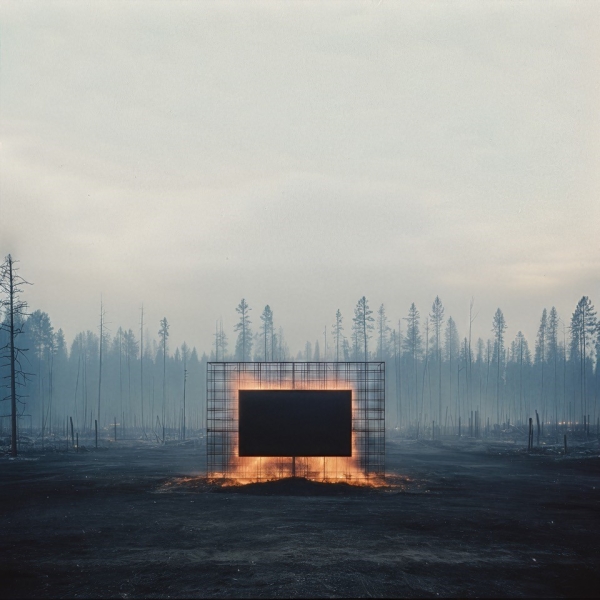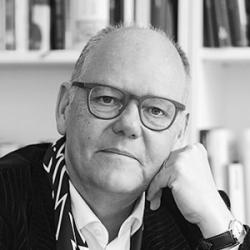Interpolations: AI, Art, and Art History
Conference
Interpolations: AI, Art, and Art History
In the language of machine learning, the term “interpolation” refers to a foundational mathematical technique used to estimate unknown values that fall between known data points. Interpolation allows to fill in missing values in existing datasets, but also to create different kinds of transitions between discrete data points. In the context of this conference, “interpolation” indicates the intention to reflect on the relations and mutual interactions between the fields of AI, art, and art history.
The conference will analyze how recent developments in the field of both analytic and generative AI have profoundly transformed the ways in which images are captured, generated, modified, seen and de- scribed, and how contemporary artists have tackled the increasing presence of AI systems, with all their epistemological and political implications, across all layers of culture and society. It will also address the question of whether traditional art-historical and media-theoretical concepts allow us to fully grasp the current, tectonic shifts, or whether new concepts and categories are needed.
The conference is structured into four panels and will include a guided tour of the exhibition The World Through AI/Le monde selon l’IA, a screening of recent AI films by Alexander Kluge, and a conversation with the author.
PROGRAM
TUESDAY, JULY 8th
Venue: German Center for Art history (DfK Paris)
9.15-9.30
WELCOME AND INTRODUCTION
Noam M. Elcott (Columbia University, New York), Peter Geimer (DFK Paris), and Antonio Somaini (Université Sorbonne Nouvelle/Institut Universitaire de France, Paris)
AI AND ART HISTORY (9.30 – 12.45)
Chair: Alban Leveau-Vallier (Université Sorbonne Nouvelle, Paris)
How is the tradition of “digital art history” transformed by the current developments in the AI field? What are the most promising avenues for art history informed by AI technologies? What are the current limitations and potential pitfalls? Beyond the direct application of AI to art historiography, can debates around machine learning and its key concepts inform the practices and theories in the field of art history? Must we rethink foundational concepts of art historiography, such as style?
9.30
Ada Ackerman (CNRS Paris): Counterfactual Art Histories?
10.10
Béatrice Joyeux-Prunel (University of Geneva): Embracing Bias, Noise, and Absence. Rethinking the Conditions for Using AI Critically in Art History
10.50 – 11.10 Coffee Break
11.10
Leonardo Impett (Bibliotheca Hertziana, Rome/University of Cambridge): Vector Media: Towards a Historical Epistemolog y of Machine Vision
11.50
Andrea Pinotti (University of Milan): Who’s Who? “Art History Without Names” Put to the Test of NST
12.30
Panel Discussion
12.45 – 14.00 Lunch Break
AI AND CONTEMPORARY ART (14.00 – 16.35)
Chair: Alexandra Gilliams (Paris 1 Panthéon-Sorbonne University)
The first histories and surveys of the relations between contemporary art and AI are being published, exhibited, and theorized across traditional institutions (like museums, university presses, and magazines); new media venues (especially social media streams); and outposts of the art trade (like galleries and fairs). To date, this is a field that includes artists experimenting with various forms of AI, responding to the urgencies of AI across mediums, and a range of practices that defy simple categorization. What are some of the dominant currents visible or palpable as contemporary artists confront AI? Who is driving the discourses, the styles, the formats? What compelling visions have failed to break through the noise? Can we envision even the near-term future of art and AI?
14.00
Grégory Chatonsky (Paris/Montreal): The White Cube in The Latent Space Ideology
14.40
Egor Kraft (Tokyo/Berlin/Vienna): Cognitectures, Engineered Cognoscapes, One & Infinite Chairs
15.20 – 15.40 Coffee Break
15.40
Noam Segal (Guggenheim Museum, New York): Toward a New Vocabulary of Art and Representation
16.20 – 16.35
Panel Discussion
18.00 – 20.00
SCREENING OF AI FILMS BY ALEXANDER KLUGE (Venue: Jeu de Paume)
The screening is introduced by Alexander Kluge in conversation with Peter Geimer and Antonio Somaini, and followed by a Q&A session.
WEDNESDAY, JULY 9th
Venue: German Center for Art History (DfK Paris)
AI AND PHOTOGRAPHY (9.15 – 12.25)
Chair: Max Bonhomme (University of Strasbourg)
Generative AI is not photography, but it is impossible to conceive outside of photo-history. Simultaneously, photo-history has been irrevocably sundered by generative AI. The most basic question—what is the relationship between photography and generative AI?—is inadequate as traditional photography and generative AI must be thought not in opposition but along a continuum. Every smartphone photograph is at once a “real” photo and a product of intensive algorithmic modification. How are photographers and artists contending with the current rupture? What histories and theories must scholars, critics, and curators now elaborate to come to terms with the new conditions of photography and AI?
9.15
Noam Elcott (Columbia University, New York): The Return of Studium: Physiognomic Vision, AI, and Photographic Vibes
9.55
Peter Geimer (DFK Paris): The End of Photographic Testimony – But the Beginning of What? Reflections on “Alternative Facts”
10.35 – 10.50 Coffee Break
10.50
Estelle Blaschke (University of Basel): The Postmodern Archive. From 1839 to AI
11.30
Michelle Kuo (Museum of Modern Art, New York): From the Pencil of Nature to the Eye of the Storm
12.10 – 12.25
Panel Discussion
12.25 – 13.15 Lunch Break
AI AND VISUAL THEORY (13.15 – 16.30)
Chair: Barnabé Sauvage (CNRS Paris)
Despite the inscrutability of deep neural networks generally and most major generative image models, we now possess compelling historical, technical, and theoretical models to grapple with AI visual culture. What are the pillars of emergent AI visual theory? How do they relate to extant visual theory? What are the new theoretical frontiers as we envision a visual culture dominated by generative AI and machine vision? What are the salient concrete touchstones for AI visual theory as it surveys the present and looks to the future?
13.15
Roland Meyer (University of Zurich/Zurich University of the Arts): Dreamworlds of Platform Capitalism: Networked Image Cultures after Generative AI
13.55
Emmanuel Alloa (University of Fribourg): Computational Art After Vilém Flusser – or: Why Digital Images don’t Exist
14.35 – 14.50 Coffee Break
14.50
Bernard Geoghegan (University of Basel): Degenerative AI
15.30
Antonio Somaini (Université Sorbonne Nouvelle/Institut Universitaire de France, Paris): Latent Spaces as Meta-Archives
16.10 – 16.30
Panel and Final Discussion
17.00 – 19.00
Visit to the Exhibition: The World Through AI / Le monde selon l’IA (Venue: Jeu de Paume)
The conference is organized by the German Center for Art History Paris (DFK Paris) in collaboration with the Jeu de Paume, where the exhibition « The World Through AI/Le monde selon l’IA » is currently on view until 21 September 2025. Concept: Noam M. Elcott (Columbia University, New York), Peter Geimer (DFK Paris), and Antonio Somaini (Université Sorbonne Nouvelle/Institut Universitaire de France, Paris).
No registration required.
Deutsches Forum für Kunstgeschichte
Centre allemand d’histoire de l’art Paris
45, rue des Petits Champs
75001 Paris
Jeu de Paume
1 place de la Concorde
Jardin des Tuileries
75001 Paris
Associated Person





